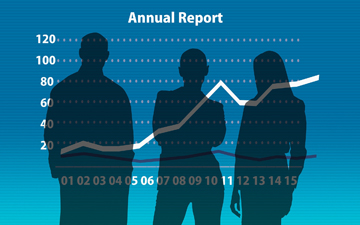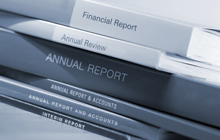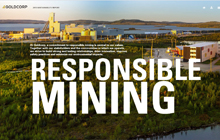Integrated reporting creating new opportunities for CPA profession

Non-traditional reporting is aligning with the overall disclosure controls of companies today, says KPMG
OTTAWA, Jan. 16, 2018 – As integrated reporting can provide much more complete information for assessing the organization, this expands the role of finance professionals and auditors, and creates new career opportunities within the Canadian accounting profession.
There is, for instance, an increasing role for finance in corporate responsibility reporting, which had originally been largely within the domain of sustainability teams. But recently, “scrutiny by regulators and other third parties has highlighted the need for non-traditional reporting to fall within the purview of the company's overall disclosure controls and procedures,” says Bill Murphy, KPMG’s national leader for sustainability services in Canada.
“For example, securities regulators are increasingly comparing the consistency of disclosures of climate-related risks in the MD&A with other external reporting such as to the CDP [formerly known as the Carbon Disclosure Project], sponsored by global institutional investors,” he notes.
Murphy also notes that there are materiality differences between financial and non-financial reporting information. Financial reporting materiality is defined in terms of errors or omissions that could impact an investor’s decision. Materiality for corporate responsibility reporting, in contrast, “is defined in terms of the importance of impacts, both positive and negative, that the organization has on its broader stakeholders,” he says.
Efforts are also underway to determine how to quantify impacts beyond those on financial capital.
“Significant focus is currently being placed on how an organization creates, protects or consumes natural and social capital — for example, through its production and employment practices. Such measures have not crossed into financial reporting standards, and in fact could create conflicting outcomes [such as] inventories that represent positive financial capital to the business but whose production consumes scarce natural resources,” Murphy says.
Third party assurance has also become increasingly common for corporate responsibility reporting, with the latest KPMG global survey showing that 67 per cent of the top global 250 companies have at least a portion of their corporate reporting indicators assured. In Canada, 32 per cent of the top 100 organizations obtain corporate reporting indicator assurance, particularly in the extractive, telecommunications and financial services sectors, notes Murphy.
“Auditors are already well equipped to express assurance on both the traditional, for example the financial statement, and non-traditional aspects, for example corporate performance indicator aspects, of an annual report,” he adds.
However, assurance of a complete integrated reporting report under the International Integrated Reporting Council framework would present certain challenges, given the broader extent of subjective disclosures included. Those challenges are currently being addressed by a global working group and various national standard setters, elaborates Murphy.
Jeff Buckstein, CPA, CGA, is an Ottawa-based business journalist. This is part of a series on voluntary reporting trends.










(0) Comments